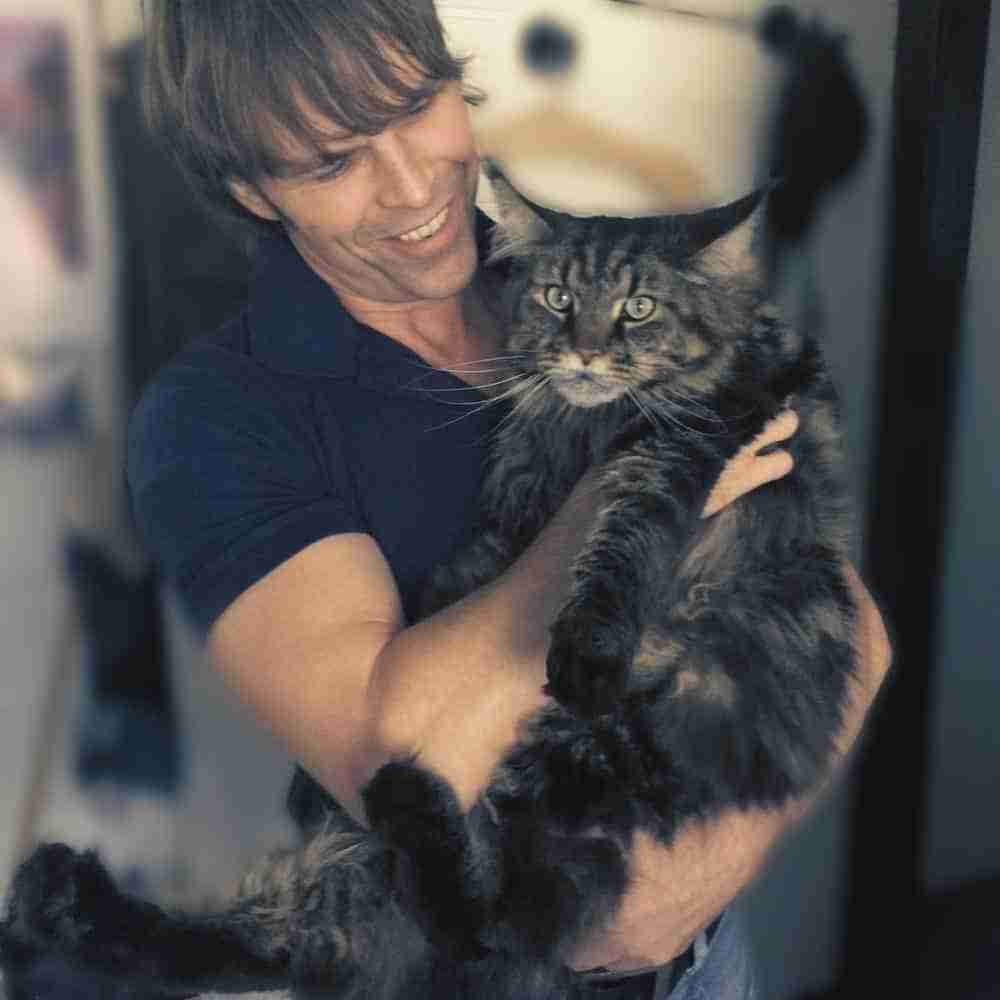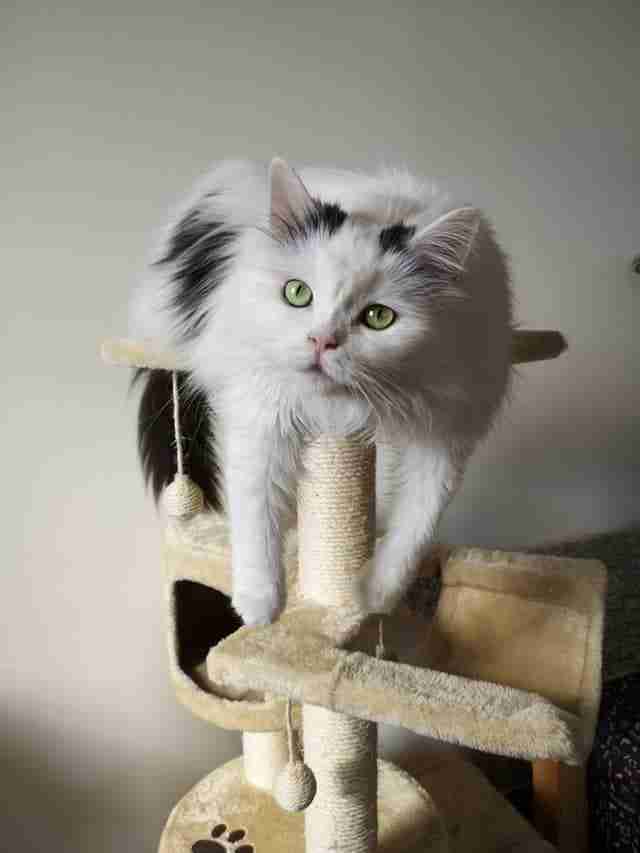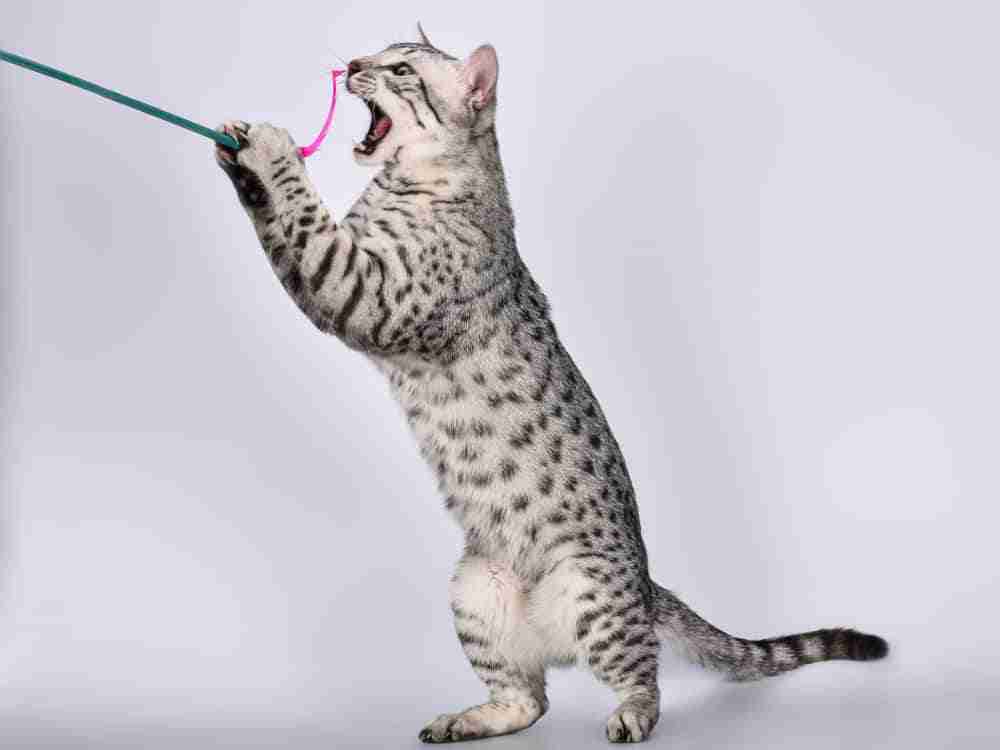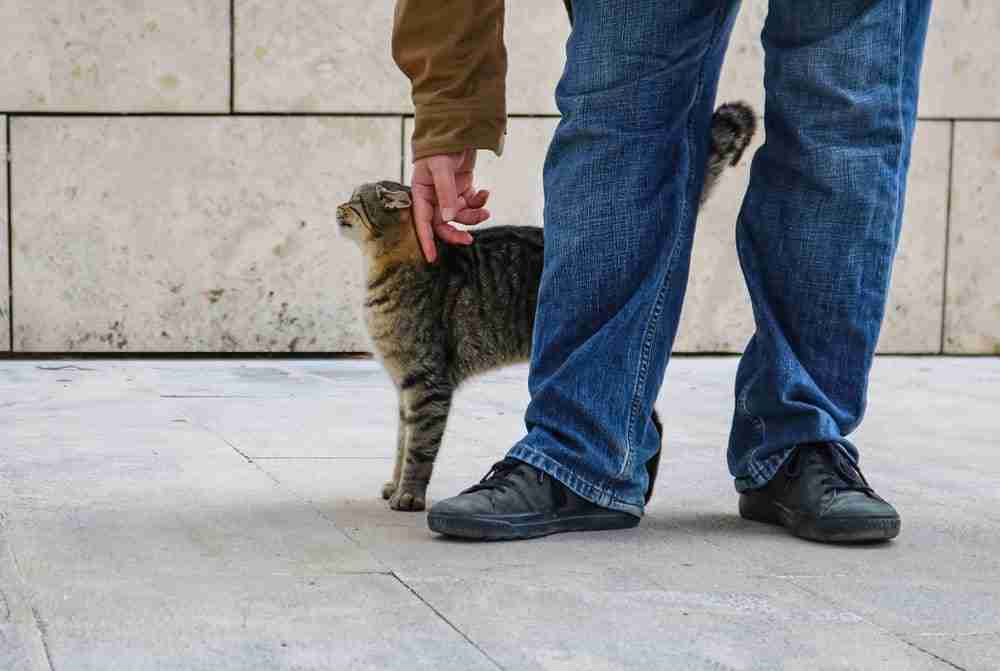Are you wondering ” why is my cat so clingy?” Cats are stereotyped as being aloof creatures that need no-one and only use us humans whilst they feel it profits them. Of course, cat lovers know this stereotype only paints a shallow picture of the lives and motivations of our pet cats.
Like most things, the real picture is often more complex – cats, even without facial expressions, come with all sorts of personalities, traits, and behaviors. Some of the most concerning behaviors are actually diametrically opposed to the stereotype. The case of the clingy cat or needy cat is one such set of behaviors that simply do not fit the stereotypical image of the average cat. Perhaps because it is so different from our understanding of feline behavior, it can be a worrying development to the cat owner who has never come across such behavior before.
In this article, we look to define the difference between a clingy and demanding cat, answer the question “why is my cat so clingy” and look at some of the potential fixes that might reduce this behavior.
Is Your Cat Clingy Or Demanding?
The two types of behavior are fundamentally motivated from different places but can present themselves in similar behaviors which can lead to confusion.
A demanding cat is a confident cat who has learned that to get what it wants it needs to get in your face or space and assert itself until it achieves its goal. This getting in your space or face might be interpreted as being needy or clingy – but once the confident cat gets what it wants it moves off into its own world to fresh new pastures. We as humans learn how to react to this behavior and hence the idea that our cats train us. Your demanding cat might want fuss and drape itself over you for hours – this is not clingy, this is a demanding cat seeking attention till it is done with you. Demanding cats can be trained by not rewarding demanding behavior.
A clingy cat might well howl at you or seemingly demand but a clingy cat comes from an anxious world. This cat is under-confident in its surroundings. It needs to be with you because without you it feels separation anxiety. Clingy cat or needy cat is the shadow that follows you, won’t eat unless you are near, insists on being in the same room and space as you – wants to share your bed, sit on you at every opportunity – for fear of being alone. This cat does not voluntarily move off after they have seemingly received that for which they have asked as a normal affectionate cat might do. Needy behavior can start in youth and be an ongoing characteristic or it can come on suddenly without warning.

Why Is My Cat Being So Clingy?
Is your cat suddenly clingy? This clingy behavior can either develop overnight or can be an ingrained behavior from youth. Let’s look at some of the common reasons your cat might have turned into or always been a needy cat:
Separated At Birth
If your cat has always exhibited clingy behavior, question whether they were separated from their mother or siblings in their infancy. If they lost their mother or siblings before they got to seven weeks old it is likely they haven’t been socialized or learned to be independent. You may have become the maternal figure and have never pushed the cat to learn to be independent. The cat thinks its behavior is utterly normal, it is simply tailing its mother – you!
Rescued/Abandoned
A rescue cat can find moving to a new home to be a traumatic experience. They may have already led to an unstable existence and be anxious from constantly changing environments. Many cats brought home from the rescue will spend the first period hiding out before gradually exploring and becoming comfortable with a new home. Some cats express their anxiety in other ways – like demanding constant attention and reassurance from a new carer.
Change Of Location/People/Surroundings
Has your cat suddenly got needy? Maybe their anxiety level has risen? Have you changed your location – moved to a new apartment or area? Perhaps you have a new partner or flatmate that is confusing your cat and causing some passing anxiety? Have you changed your rooms around, swapped out furniture, or repurposed rooms in your home? Changes in the environment – even small changes can unsettle a cat and cause them anxiety leading to choosing you as their comfort zone.
Change Of Routine/Shift In Work Pattern
A change of the normal routine can be enough to make your kitty clingy. Have you shifted your work pattern – working different shifts can confuse and cause separation anxiety in your cat that may get them following you around for fear of you suddenly, unexpectedly, disappearing…

They Are Sick
Sometimes they are just trying to communicate with you – it is just that the topic of conversation might not be obvious!
If your cat has suddenly gone clingy and you can’t see any lifestyle or environmental changes that might be spooking them, then consider they might well be ill and be trying to alert you and get help. Effectively, they are moaning at you about not feeling good.
Your cat can hide illness and problems until the very last minute. If your cat has suddenly turned from confident to clingy cat a visit to the vet for a checkup might be in order – just to rule out any possibilities.
You Are Sick Or Vulnerable
Maybe it is you the cat is worried about! Are you in good health and tip-top shape? Cats and other animals are very good at sensing energy, reading body language, picking up on odors and abnormalities – maybe you need a check-up and haven’t figured it out yet!
Often, ladies who fall pregnant will find their pet cat picks up on their condition very early in the pregnancy and will seek to comfort and share with their human companion.
Ever noticed when you are under the weather that your cat spends more time with you? Maybe your cat is not clingy but concerned for your well being…
Hunger
Maybe, especially if you do not free-feed, you are just not feeding them enough and they are darned hungry – like all the time! Cats need calories and if you don’t give them enough hunger can kick in quickly – and then you, as the food guardian, are going to be the centre of attention and followed around constantly. A non-vocal cat will just stay close to the source in the hope the source provides.
Boredom

Your cat may be bored out of its brains and be using you as it’s the only form of mental stimulation. Is your cat an indoor cat? Does your cat have the company of another cat? Is your cat alone for significant chunks of the day? If this sounds familiar, your cat may well be bored and lonely. If they are a few months old or young with boundless energy then the problem is likely even more pronounced. Maybe you are around all day but your cat needs action and activity to relieve boredom – you are going to be the focus.
Aging
Is your cat senior or geriatric? Aging can make your old cat feel insecure, loss of hearing or fading sight can make your cat stick close for safety and to remain part of the action without missing out on anything. A reduction in energy and ability can leave all of us feeling vulnerable and happier in company as we age – perhaps your cat is entering twilight years and may need more of your presence?
How To Get A Cat To Stop Being Clingy
If your cat is clingy there are a few simple steps you can take to alleviate the situation and hopefully bring the cat to a place of higher confidence so they are a little less likely to be reliant on you. Here are some basic steps you can take:
Rule Out A Medical Issue
First up get your cat checked out and establish they are in good health, feeling well, and are not hiding an illness. Once you are clear this is a mental rather than physical problem you can consider making changes to their environment knowing you are not wasting your time!
Play With Them Regularly

To eliminate boredom, build up self-confidence and use up excess energy you should be regularly playing with your cat-like for a sustained period on a daily basis! You want to wear them out, use toys that get them thinking and focused and introduce some active bonding time.
Play will hopefully divert attention from you to the activity and reduce nervous energy that might contribute to anxiety.
Give Them Areas Near You
If your cat is trying to get as close to you as possible at every opportunity rather than reject the cat or push it away you can set aside space nearby which is in your zone without being on you. If you work at a desk at home you can set up a chair near the desk for the cat or create a space on the desk for the cat to sit which is far enough away to allow you to work but near enough for the cat to feel close.
If your cat wants to be in your bedroom, you can set a cat bed up for them near your bed. If they are already sleeping with you and this is an issue you can introduce a pet bed for them to use then as they get used to the bed slowly start to move them and the bed away at gradual intervals.
Create Safe Areas
You can create safe areas for your cat which are their own and may help them feel less anxious but still near the action. Cats love a large cat tree and high positions because they can safely overlook their environment and can’t be ambushed easily – have you provide such spots in your home that help your cat feel safe? A high perch they can retreat up when they feel anxious could make all the difference.
Mental Stimulation
Your cat might be following you because they are bored or lacking stimulation and we already touched on how play might help with this. A cat tree might help create a safe place on high for them but putting it in front of a window so they can survey the world and watch “cat tv” might also provide stimulation that they then won’t have to seek from you! Combine this with a cat puzzle feeder that deflects attention from you and adds stimulation and reward and you should find your cat develops their self-confidence and independence over time.
Pheromones
Clingy cats are usually anxious and a good way to reduce anxiety – or at least a potentially cheap fix – is to try some cat pheromones, like Feliway, around the house. This may be enough to get your cat relaxed and a little less interested in you.

Avoid Separation Anxiety
If your hours or routine have changed this can affect your cat and bring on separation anxiety. You can help your cat adjust by leaving and entering the home quietly without fuss, swapping out durations so the cat learns to accept short then longer periods of separation.
Cats pick up on departure cues that bring on separation anxiety – like picking up keys and the like – get them used to the cues without the separation actually always happening.
Our furry friends are often accused of being aloof and independent but often they are not as adaptable as we think – small changes to routine and environment can spook them and contribute to anxiety and a loss of confidence. Often the key to overcoming these issues is to provide stimulation through play and safe areas they can retreat. Whatever you do avoid losing patience or raising your voice – this will only increase the anxiety levels in your cat.
